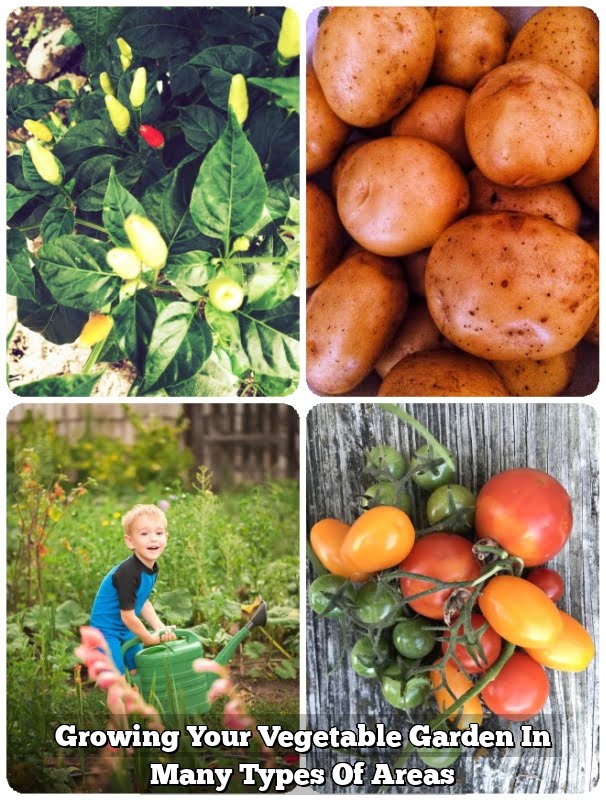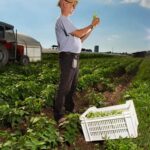Types Of Soil For Vegetable Garden
In order to have a successful vegetable garden, you need to have the proper soil. The type of soil you have will determine what vegetables you can grow and how well they will grow. There are many different types of soil, but not all of them are suitable for vegetable gardens.
The best type of soil for a vegetable garden is a well-drained, sandy loam. This type of soil is light and sandy, but it also has a good amount of clay in it, which helps to retain moisture. It is also acidic, which is ideal for growing vegetables.
If you don’t have sandy loam soil, you can create it by mixing together equal parts of sand, clay, and organic matter. If your soil is too sandy, you can add some clay to it. If it is too clayey, you can add some sand or organic matter.
If you can’t improve your soil, you can still grow vegetables by using containers. The best type of soil for containers is a potting mix, which is a mixture of soil, sand, and organic matter.
No matter what type of soil you have, you can still grow some vegetables in it. However, the vegetables will not grow as well as they would in a sandy loam soil. The best vegetables to grow in poor soil are leafy vegetables and root vegetables.
Best Soil For Raised Bed Vegetable Garden
The best soil for a raised bed vegetable garden is a well-drained mixture of organic matter and soil. The organic matter will help to improve the soil’s structure and drainage, while the soil will provide the nutrients that your plants need.
You can create your own soil mix for a raised bed vegetable garden, or you can buy a pre-made mix. If you create your own mix, be sure to include organic matter such as compost, peat moss, or vermiculite, and soil amendments such as lime or sulfur to adjust the pH.
If you buy a pre-made mix, be sure to read the ingredients list to make sure that it includes organic matter and soil amendments.
The best time to plant a raised bed vegetable garden is in the spring, after the last frost has passed.
How Do You Prepare The Soil For A Vegetable Garden
?
The best way to prepare the soil for a vegetable garden is to till the soil to a depth of at least eight inches. You can also add organic matter to the soil, such as compost or manure, to improve the soil’s structure and fertility. If your soil is sandy or heavy in clay, you can also add some organic matter to help improve the soil’s quality. After tilling or adding organic matter, you should rake the soil smooth and then plant your vegetables.
Monterey Vegetable Garden Soil Insecticide Ebay
If you are a gardener who is looking for a way to get rid of soil insects, you may be interested in Monterey vegetable garden soil insecticide ebay. This product is a contact insecticide that is designed to kill soil insects on contact. It is available in a liquid form, and it can be used to treat a variety of different crops, including vegetables, fruits, and nuts.
When you use Monterey vegetable garden soil insecticide ebay, you will need to apply it to the soil in a way that will allow the product to contact the insects. You can do this by spraying the product on the plants, or by applying it to the soil around the plants. It is important to keep in mind that this product is not a systemic insecticide, so it will not be absorbed by the plants and will not provide long-term protection against soil insects.
If you are looking for a contact insecticide that can be used to kill soil insects, Monterey vegetable garden soil insecticide ebay may be a good option for you. This product is available in a liquid form, and it can be used to treat a variety of different crops.
What To Add To Vegetable Garden Soil In Spring
In the spring, it is important to add organic matter to your vegetable garden soil to help improve the soil structure, fertility, and water-holding capacity. organic matter can be added in the form of compost, manure, or leaf mold.
Compost is made up of decomposed organic matter, such as leaves, grass clippings, and vegetable scraps. It is a great source of nutrients for plants, and it also helps to improve the soil structure and fertility.
Manure is another great source of organic matter. It is high in nitrogen and other nutrients, which helps to improve the fertility of the soil. However, it is important to use manure sparingly, as it can also be high in salts, which can damage plants.
Leaf mold is made from decayed leaves. It is high in organic matter, and it also helps to improve the water-holding capacity of the soil.

If you’re looking to get into vegetable gardening, or are just looking for some tips on how to make your current garden better, then you’ve come to the right place! My name is Ethel and I have been gardening for years. In this blog, I’m going to share with you some of my best tips on how to create a successful vegetable garden.





